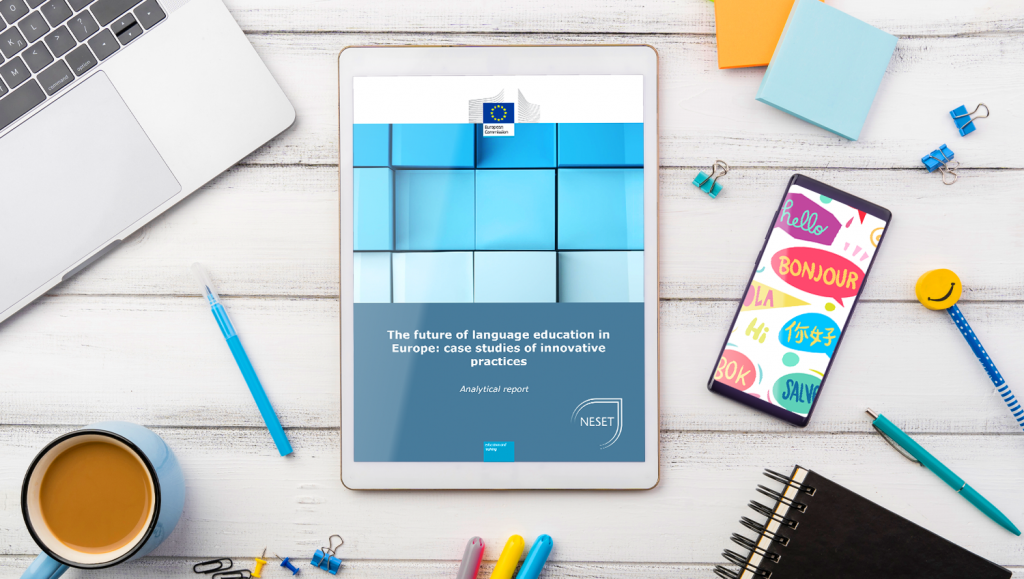NESET reviews the innovative practices in Europe’s language education

Linguistic diversity is one of the great strengths of the European Union. To foster the potential of linguistic diversity to support multilingual competences of students and help overcome possible challenges, innovative policies and practices in language teaching must be implemented across classrooms, schools, regions and countries.
Network members Emmanuelle Le Pichon-Vorstman, Hanna Siarova and researcher Eszter Szőnyi present a new analytical report on language education. “The future of language education in Europe: case studies of innovative practices” aims to:
- explore emerging innovative approaches and strategies of language teaching in Europe supporting learners’ plurilingualism,
- inspire educators and policy makers to innovate and implement forward-looking policies and practices in language education, and
- contribute to the implementation of the EU Council Recommendation on a comprehensive approach to the teaching and learning of languages[1] (adopted in May 2019).
Case studies: innovative language teaching and learning policies and practices
The report includes six case studies that illustrate how policy makers and educators have responded to the complexity of the new linguistic landscape – and highlight the need for more efficient language education in specific European contexts.
- Multilingual programme Studi/Binogi in Sweden
- Accelerative Integrated Method of foreign language teaching in the Netherlands
- The bi-/plurilingual education model of the Aosta Valley, Italy
- The education model of the Basque Country, Spain
- Language-sensitive curriculum in Finland
- The CertiLingua school network active across a number of the EU Member States
Case studies were developed by Emmanuelle Le Pichon-Vorstman, Jim Cummins, Audrey Rousse-Malpat, Marjolijn Verspoor, Marisa Cavalli, Eneko Antón, Jon Andoni Duñabeitia, Jenni Alisaari, Orestas Strauka and Hanna Siarova.
The full analytical report in English, executive summaries in English, French and German, and one-pager are available for download in our Library.
[1] Council Recommendation of 22 May 2019 on a comprehensive approach to the teaching and learning of languages
- New report reveals what works in teaching reading: effective practices to improve literacy results
- New study highlights broader educational benefits of Learning for Sustainability
- The latest and final NESET Newsletter is out!
- New ad hoc report on Screen time and Educational Outcomes is out!
- Insightful NESET Webinar on Closing the Gender Gap in STEM Education: What Works?
- Join the Webinar: Closing the gender gap in STEM education. What works?
- New Analytical Report on Quality Frameworks in Early Childhood Education and Care (ECEC) is out!
- Emerging trends on the social dimension of Education and Training: key insights from January to June 2024
- New NESET report addresses the gender gap in STEM education across educational levels
- Upcoming webinars in June on the thematic of wellbeing

